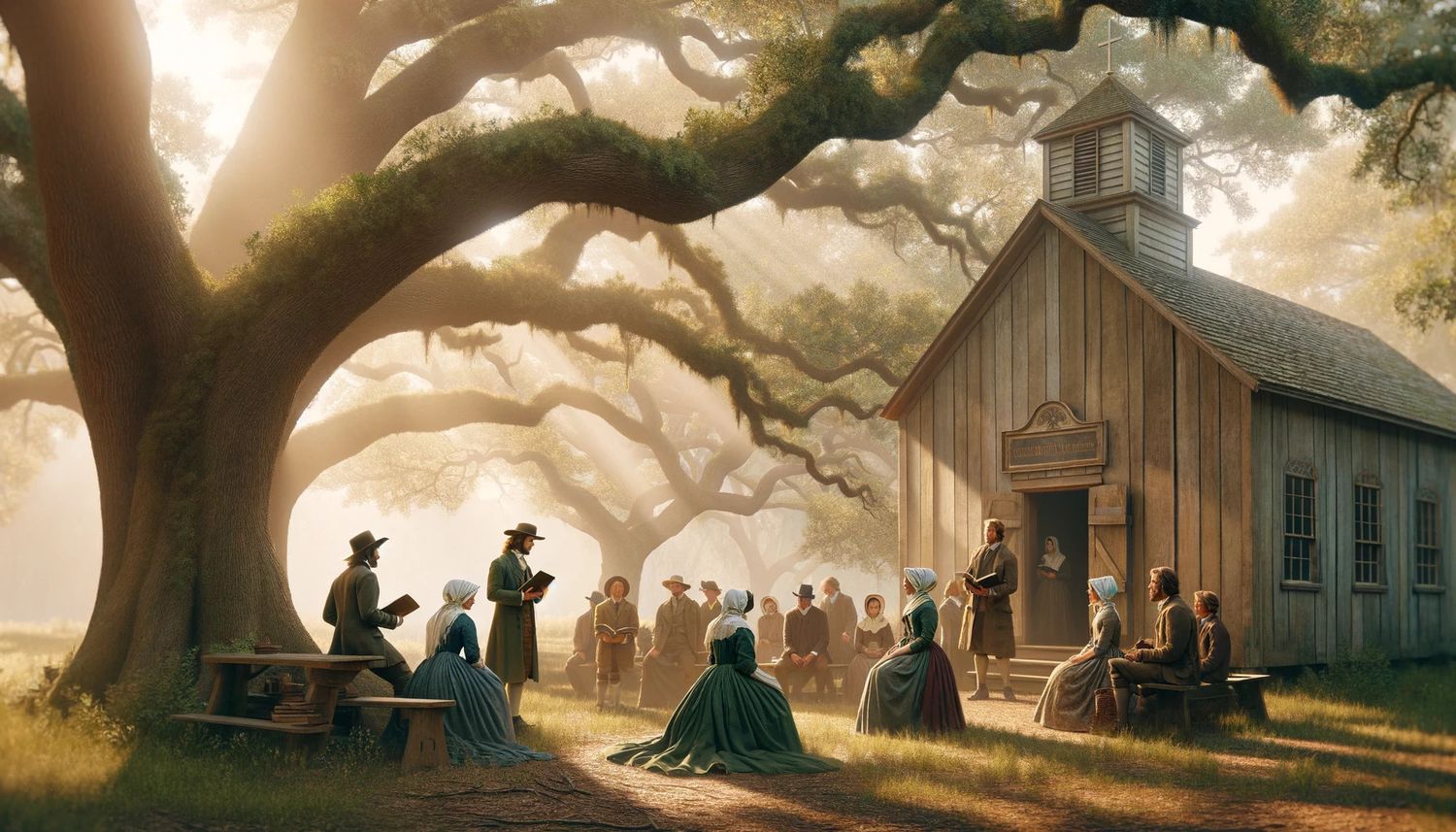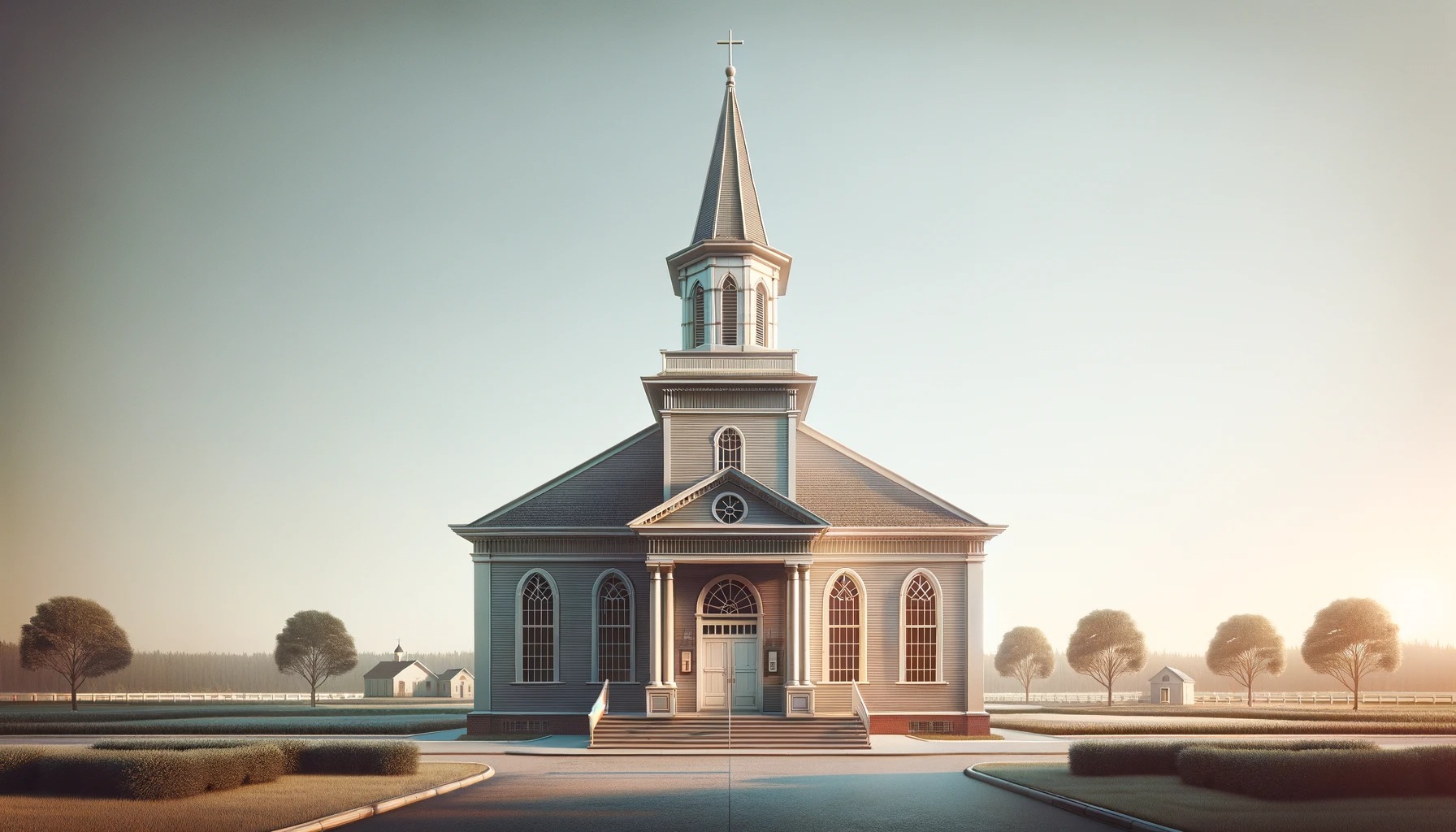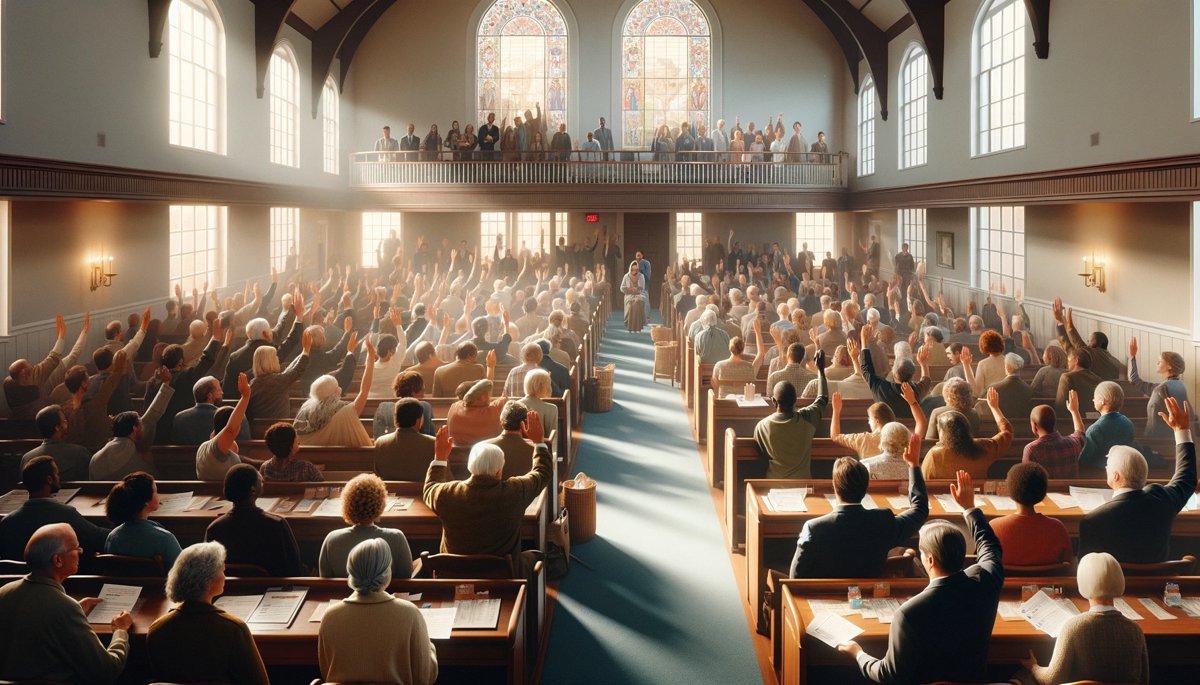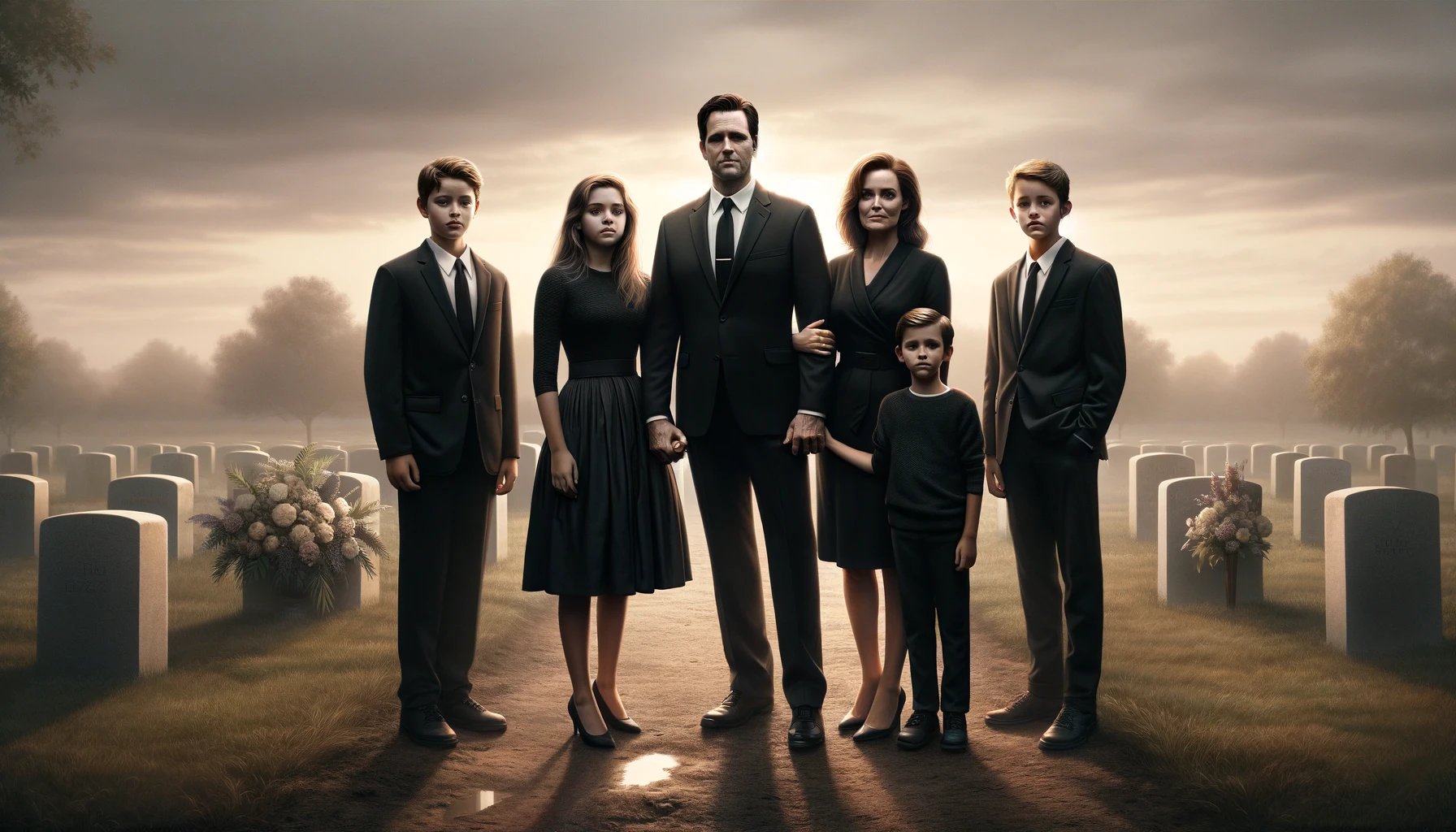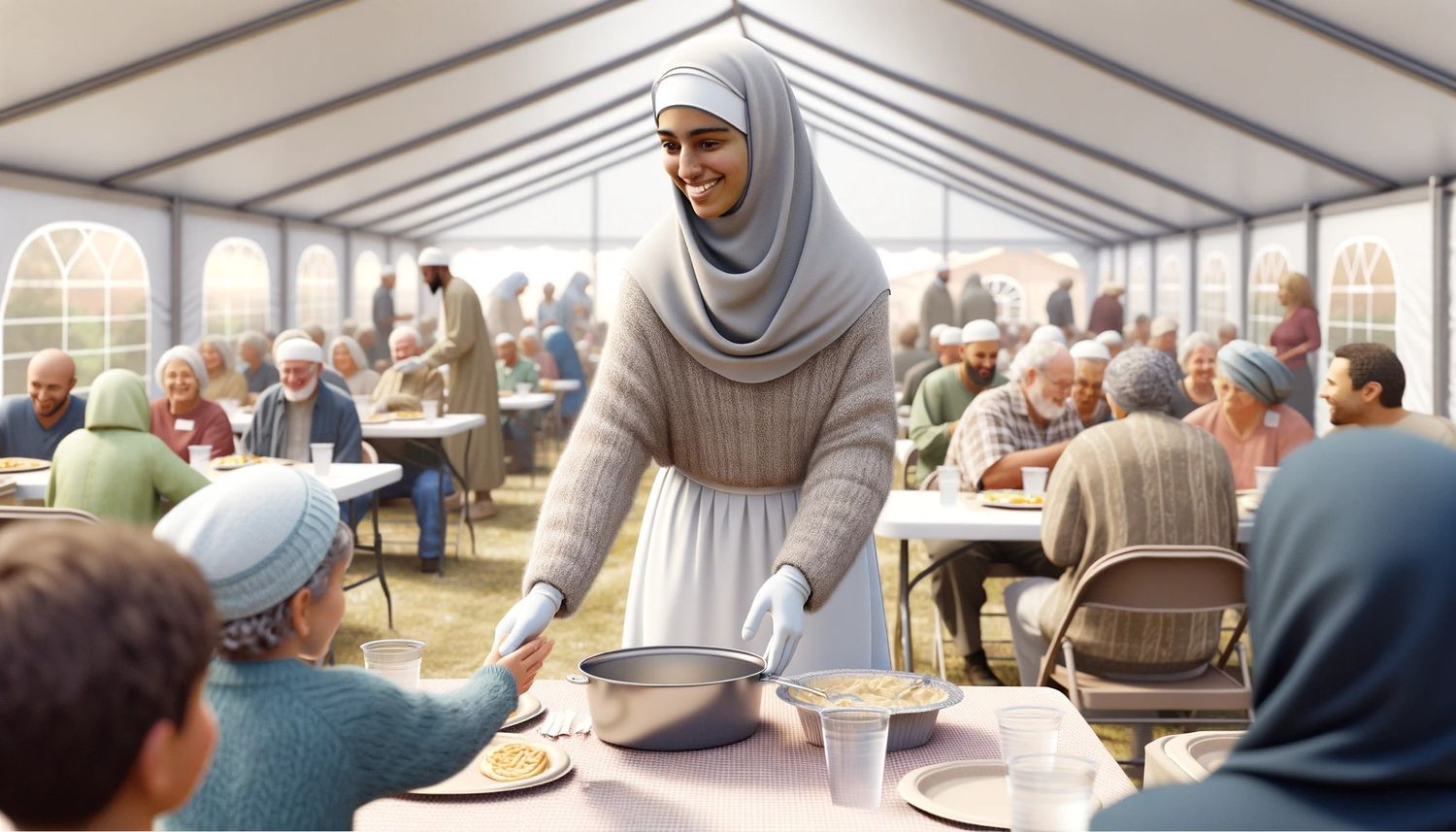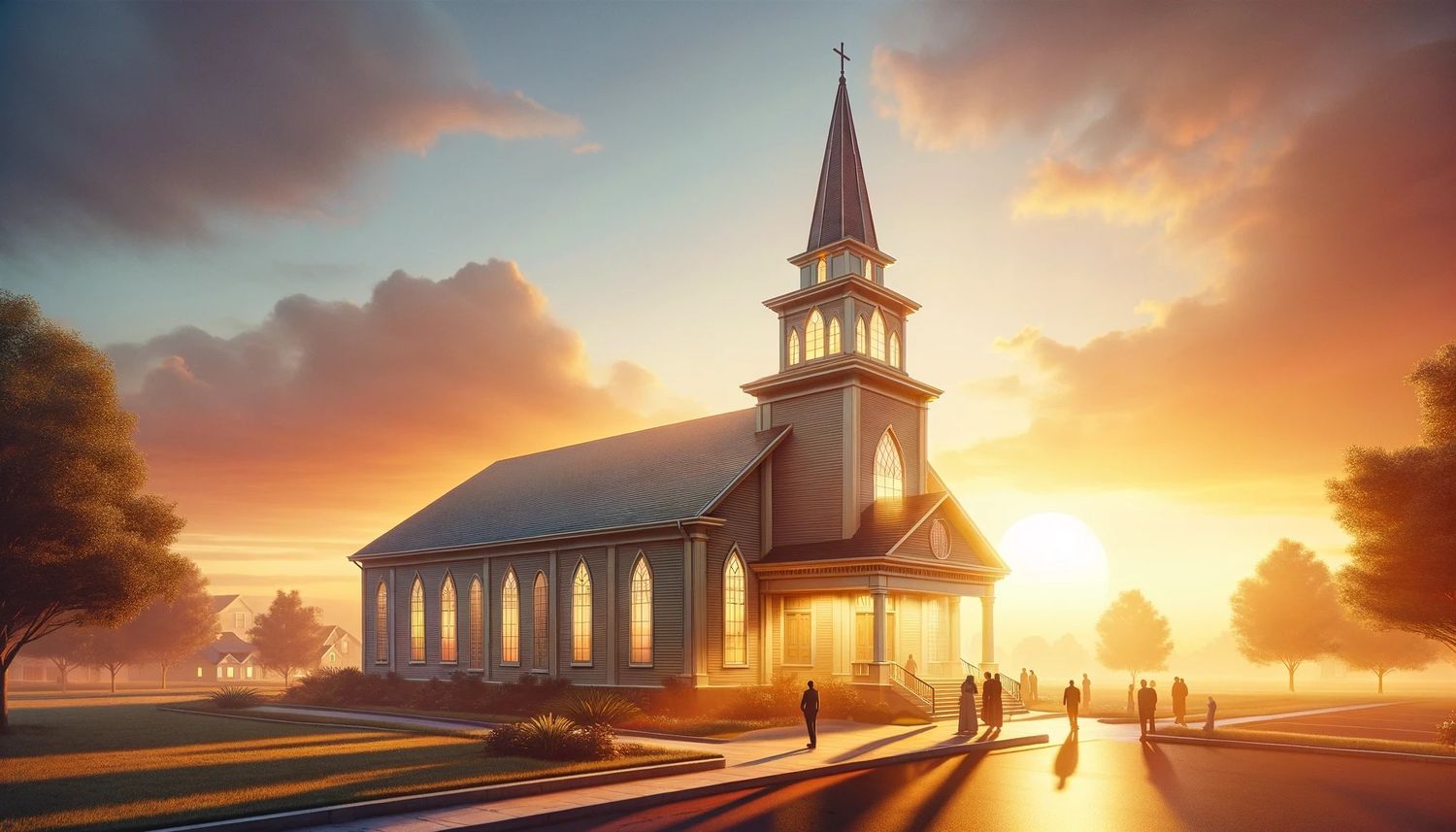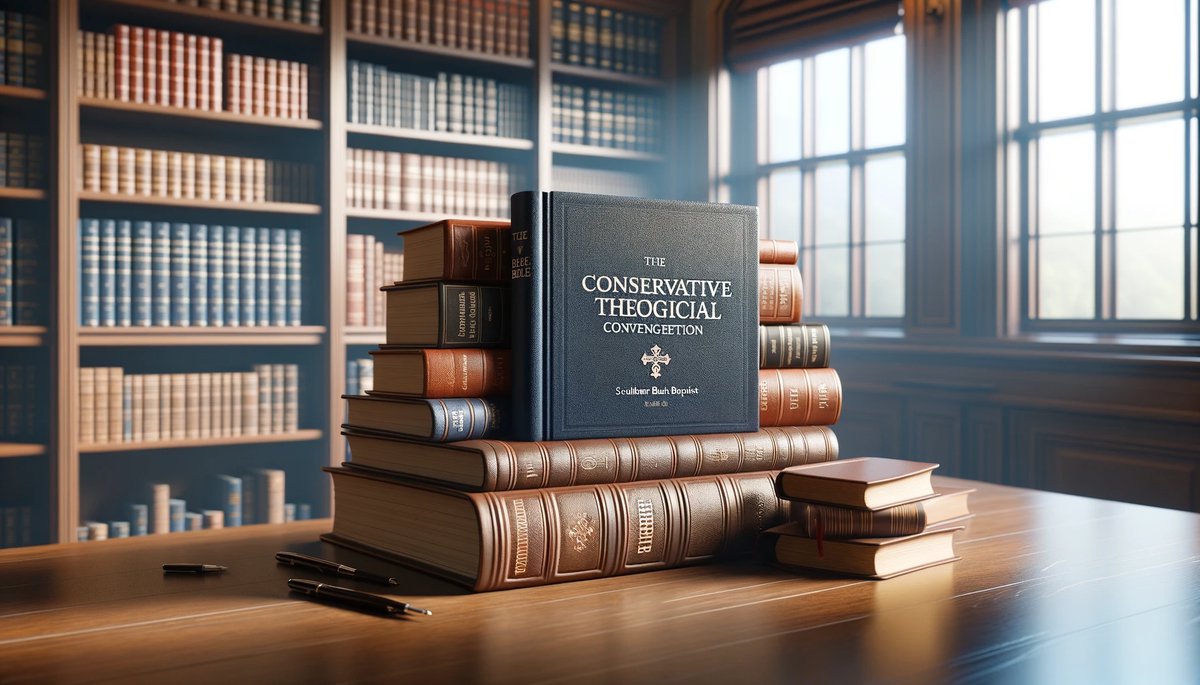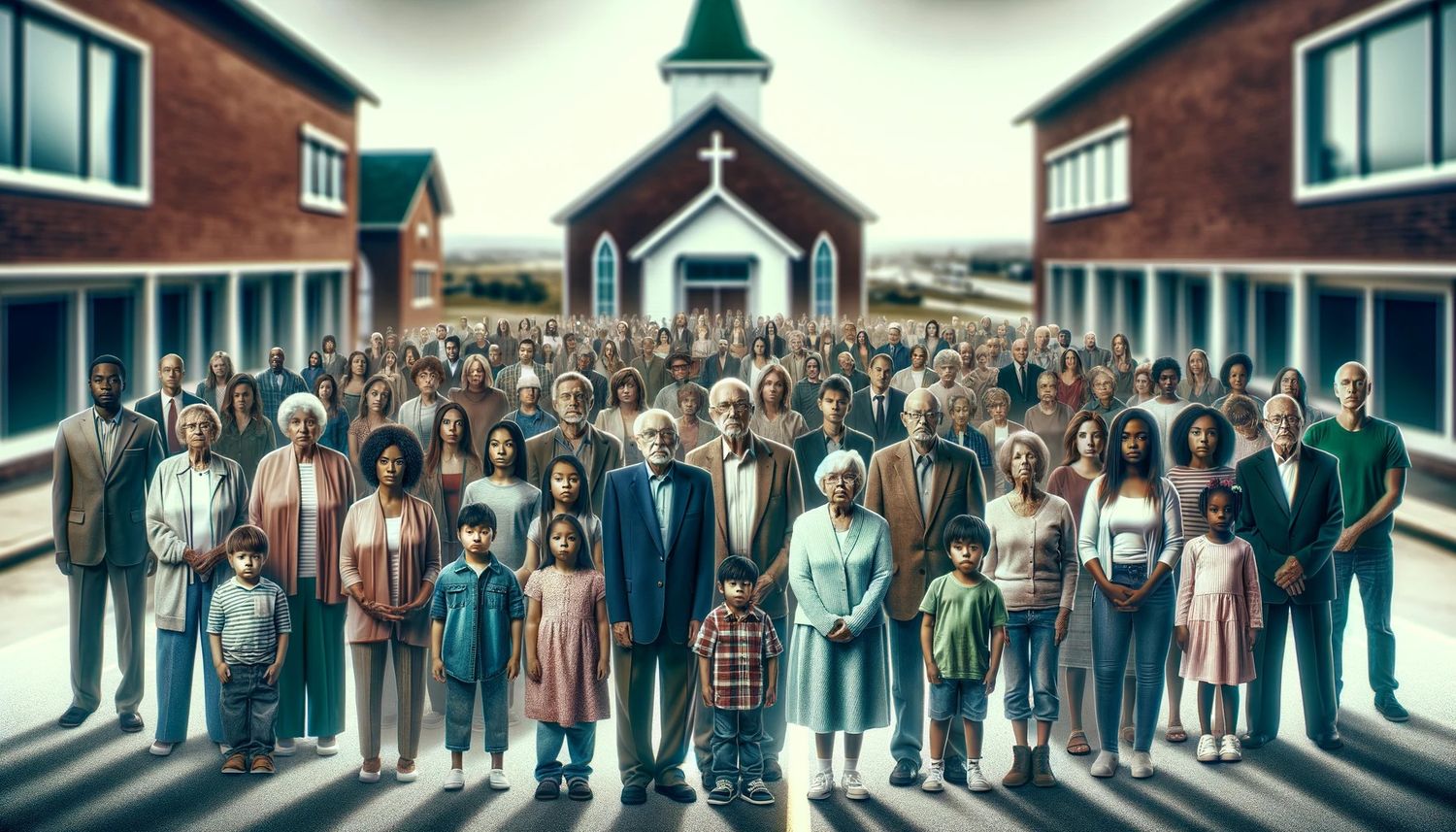Home>Theology and Spirituality>What Is A Southern Baptist Church
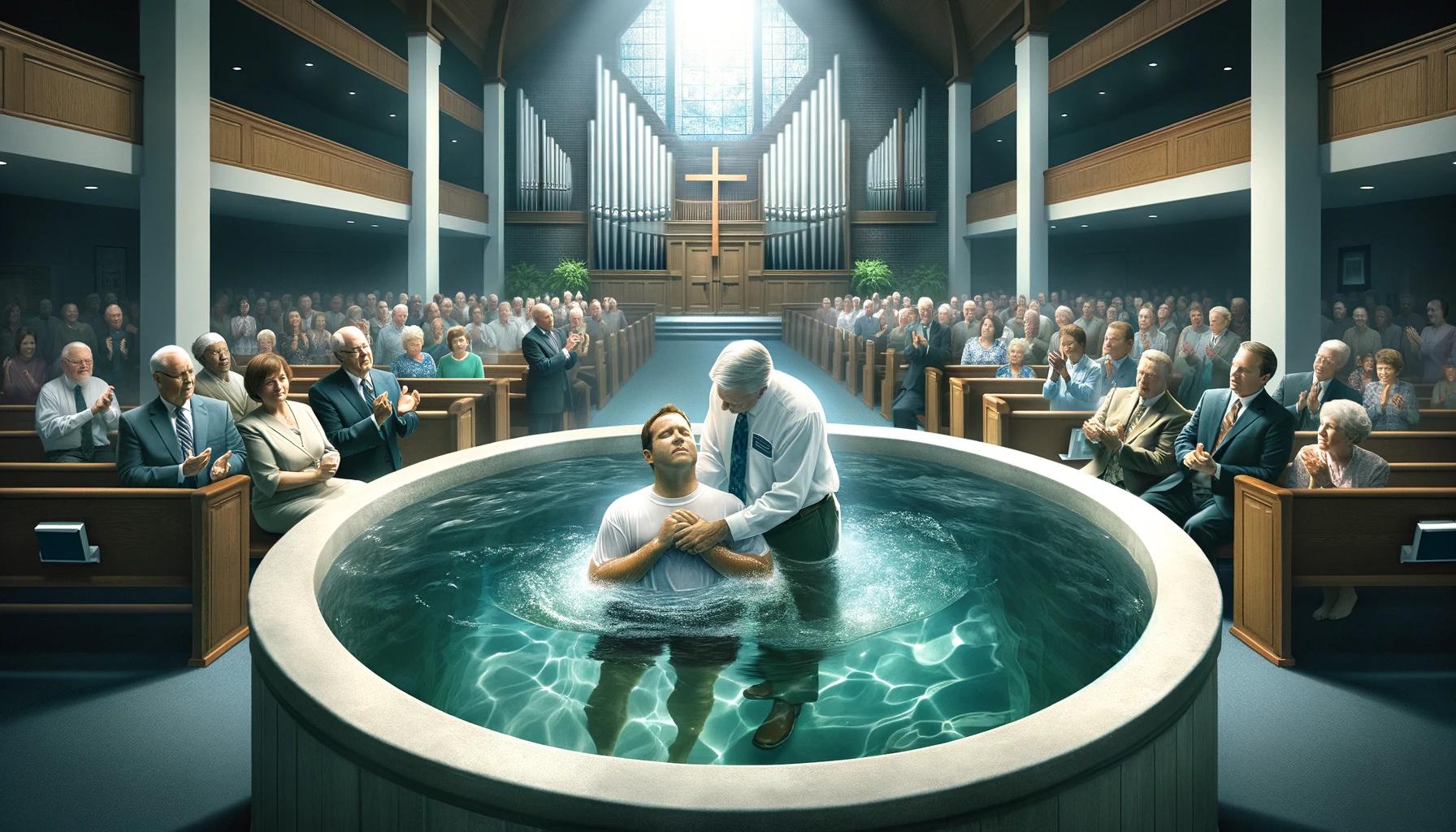

Theology and Spirituality
What Is A Southern Baptist Church
Published: February 21, 2024
Jason DeRose, Managing Editor at Christian.net, uses his expertise in religion and journalism to deepen understanding of faith's societal impacts. His editorial leadership, coupled with a strong academic background, enriches the platform’s diverse content, earning him recognition in both journalism and religious circles.
Discover the core beliefs and practices of Southern Baptist churches, exploring their theology and spirituality. Learn about their distinct approach to faith and community.
(Many of the links in this article redirect to a specific reviewed product. Your purchase of these products through affiliate links helps to generate commission for Christian.net, at no extra cost. Learn more)
Table of Contents
Introduction
The Southern Baptist Church stands as a cornerstone of faith and community for millions of individuals across the United States and beyond. With a rich history, deeply held beliefs, and a strong sense of community, the Southern Baptist Church has left an indelible mark on the religious landscape.
As we delve into the world of the Southern Baptist Church, we will explore its origins, core beliefs, and the impact it has had on the lives of its members. From its humble beginnings to its present-day influence, the Southern Baptist Church has remained steadfast in its commitment to faith, service, and fellowship.
Join me on this enlightening journey as we uncover the essence of the Southern Baptist Church and gain a deeper understanding of its significance in the lives of countless individuals.
History of Southern Baptist Church
The history of the Southern Baptist Church is a tapestry woven with threads of faith, resilience, and unwavering commitment. Its roots can be traced back to the early 17th century when English Separatists sought religious freedom in the New World. However, it was not until the 19th century that the Southern Baptist Convention officially took shape.
The catalyst for the formation of the Southern Baptist Convention can be attributed to the issue of slavery. In 1845, Southern Baptists split from the Triennial Convention over the appointment of a missionary who owned slaves. This schism led to the establishment of the Southern Baptist Convention, marking the beginning of a distinct trajectory for Southern Baptists.
Throughout the 20th century, the Southern Baptist Convention experienced significant growth and transformation. The denomination expanded its outreach, established educational institutions, and solidified its commitment to evangelism and missions. The conservative resurgence in the late 20th century also left an indelible mark on the Southern Baptist Church, shaping its theological landscape and organizational structure.
In recent decades, the Southern Baptist Convention has grappled with various internal and external challenges, including issues related to gender roles, racial reconciliation, and cultural engagement. Despite these challenges, the Southern Baptist Church remains a prominent force in the religious realm, with a steadfast dedication to spreading the message of Christ and serving communities both locally and globally.
The history of the Southern Baptist Church is a testament to the enduring nature of faith and the resilience of a community bound together by shared beliefs and a commitment to the gospel. As the Southern Baptist Convention continues to navigate the complexities of the modern world, its rich history serves as a guiding light, illuminating the path forward with unwavering conviction and a spirit of unity.
Beliefs and Practices
The Southern Baptist Church is characterized by a set of core beliefs and practices that form the foundation of its faith community. At the heart of Southern Baptist theology is a firm commitment to the authority of the Bible as the inspired and inerrant word of God. This foundational belief serves as a guiding principle for interpreting and understanding the teachings of the Christian faith.
Central to the Southern Baptist belief system is the concept of salvation through faith in Jesus Christ. Southern Baptists affirm the necessity of personal faith in Christ for salvation and emphasize the importance of evangelism and sharing the gospel with others. Baptism by immersion is a significant practice within the Southern Baptist tradition, symbolizing the believer's identification with the death, burial, and resurrection of Jesus Christ.
In matters of worship and spiritual life, the Southern Baptist Church places a strong emphasis on congregational singing, prayer, and expository preaching. The act of gathering for worship is viewed as a vital expression of communal faith and a means of nurturing spiritual growth and fellowship.
The Southern Baptist Church also upholds traditional Christian moral values, advocating for the sanctity of life, the importance of marriage and family, and the promotion of ethical living based on biblical teachings. This commitment to moral and ethical principles extends to the denomination's engagement with social and cultural issues, as Southern Baptists seek to apply their faith to the broader context of contemporary society.
In terms of governance and organizational structure, the Southern Baptist Convention operates on a congregational model, granting autonomy to individual churches while fostering collaboration and mutual support through cooperative missions and ministries. This decentralized approach allows for a degree of flexibility and diversity within the denomination while maintaining a shared sense of purpose and mission.
The beliefs and practices of the Southern Baptist Church reflect a deep-seated commitment to biblical truth, evangelism, worship, moral integrity, and collaborative ministry. These foundational elements serve to shape the identity of the Southern Baptist community and guide its interactions with the world at large, embodying a faith that is both deeply rooted in tradition and responsive to the evolving needs of contemporary society.
Leadership Structure
The leadership structure of the Southern Baptist Church is characterized by a commitment to servant leadership, congregational autonomy, and collaborative decision-making. At the local level, individual Southern Baptist churches operate with a high degree of autonomy, allowing each congregation to govern its affairs and make decisions regarding matters such as budgeting, staffing, and ministry initiatives. This congregational autonomy is a defining feature of the Southern Baptist tradition, reflecting a deep respect for the independence and self-governance of each local body of believers.
Within the framework of congregational autonomy, Southern Baptist churches typically operate under a leadership model that includes ordained ministers, deacons, and various lay leaders. The role of the ordained minister, often referred to as the pastor, is central to the spiritual and pastoral care of the congregation. Pastors are responsible for preaching, teaching, providing pastoral counseling, and overseeing the overall spiritual direction of the church. While the specific responsibilities of a pastor may vary from one congregation to another, the role is generally characterized by a deep commitment to shepherding the flock and equipping believers for ministry.
Deacons play a vital role in supporting the pastoral ministry and serving the practical needs of the congregation. Their responsibilities often include assisting with benevolence efforts, providing support to church members in times of need, and contributing to the overall welfare of the church community. Lay leaders, including individuals serving in various ministry capacities, also play a significant role in the leadership and functioning of the church, contributing their time, talents, and resources to advance the mission and vision of the congregation.
At the denominational level, the Southern Baptist Convention operates through a representative system, with elected leaders and committees overseeing various aspects of the denomination's work. The Southern Baptist Convention Annual Meeting serves as a key forum for conducting business, making decisions, and setting priorities for the broader Southern Baptist family. Elected leaders, including the president of the Southern Baptist Convention, provide leadership and guidance on matters of denominational significance, working in collaboration with other leaders and entities to advance the collective mission and vision of the Southern Baptist Convention.
The leadership structure of the Southern Baptist Church reflects a balance between local autonomy and cooperative collaboration, emphasizing the importance of servant leadership, shared decision-making, and a commitment to advancing the gospel both locally and globally. This decentralized yet interconnected approach to leadership underscores the Southern Baptist commitment to fostering a sense of unity and purpose while honoring the diverse expressions of faith within the larger Southern Baptist family.
Worship and Community Life
Worship lies at the heart of the Southern Baptist Church, serving as a vibrant expression of faith, unity, and spiritual vitality. The act of gathering for worship represents a sacred opportunity for believers to come together, lift their voices in praise, and engage in communal acts of devotion. Within the Southern Baptist tradition, worship encompasses a rich tapestry of practices, each contributing to the vibrant tapestry of community life.
Sunday Worship Services: Sunday mornings hold special significance for Southern Baptists, as congregations gather for worship services that typically feature a blend of congregational singing, prayer, scripture reading, and expository preaching. The worship experience is designed to foster a sense of reverence, celebration, and spiritual growth, providing a space for believers to encounter the presence of God and draw inspiration from the teachings of scripture.
Music and Hymnody: Music plays a central role in Southern Baptist worship, with congregational singing serving as a cherished tradition that unites believers in collective praise and adoration. Hymns and contemporary worship songs alike form an integral part of the worship experience, offering a diverse range of musical expressions that resonate with the hearts of worshippers and elevate the atmosphere of worship.
Prayer and Fellowship: Beyond the formal elements of the worship service, Southern Baptist congregations often prioritize moments of prayer and fellowship, allowing members to intercede for one another, share personal testimonies, and cultivate a sense of community and support. These moments of connection and communion serve to strengthen the bonds of fellowship and nurture a spirit of unity and care within the church body.
Special Services and Events: In addition to regular Sunday worship services, Southern Baptist churches often host special services and events that further enrich the community life of the congregation. These may include midweek prayer gatherings, seasonal celebrations, outreach initiatives, and opportunities for discipleship and spiritual formation, all of which contribute to the holistic experience of worship and community life.
Small Groups and Ministries: Southern Baptist churches frequently emphasize the importance of small groups and ministries as integral components of community life. These smaller gatherings provide avenues for deeper fellowship, mutual support, and spiritual growth, allowing members to form meaningful connections, study scripture together, and engage in acts of service and outreach within the broader community.
The worship and community life of the Southern Baptist Church embody a dynamic interplay of spiritual devotion, communal engagement, and shared mission. Through vibrant worship experiences, meaningful connections, and a commitment to nurturing a thriving community of faith, Southern Baptist congregations continue to exemplify the transformative power of worship and fellowship in the life of the believer.
Missions and Outreach
Missions and outreach stand as foundational pillars of the Southern Baptist Church, reflecting a deep commitment to sharing the love of Christ and serving the needs of communities both near and far. At the heart of the Southern Baptist tradition lies a fervent dedication to fulfilling the Great Commission, as articulated in the Gospel of Matthew, which calls believers to go and make disciples of all nations. This mandate serves as a guiding principle for the denomination's expansive mission endeavors, encompassing a wide array of local, national, and international outreach initiatives.
Local and Community Engagement
Southern Baptist churches actively engage in local missions and outreach efforts, seeking to address the tangible needs of their immediate communities. These endeavors may include food drives, clothing distribution, disaster relief, and partnerships with local organizations to provide assistance to the marginalized and underserved. By actively participating in community outreach, Southern Baptist congregations demonstrate a tangible expression of Christ's love and compassion, embodying the spirit of servant-hearted ministry within their local contexts.
National Initiatives and Collaborative Efforts
On a national level, the Southern Baptist Convention coordinates and supports a range of initiatives aimed at addressing pressing social issues, promoting evangelism, and providing aid to communities across the United States. Through partnerships with other denominational entities, disaster relief organizations, and community development agencies, Southern Baptists work collaboratively to extend practical assistance and spiritual care to those affected by various challenges, including natural disasters, poverty, and social injustice.
International Missions and Global Impact
The global mission efforts of the Southern Baptist Church span continents and cultures, reflecting a commitment to cross-cultural evangelism, discipleship, and holistic ministry. Southern Baptist missionaries, supported by the International Mission Board, serve in diverse contexts, sharing the message of hope and salvation while addressing critical needs related to healthcare, education, and community development. These missionaries work alongside local believers, empowering indigenous leadership and fostering sustainable, long-term impact in regions where the gospel has yet to take root.
Read more: What Is A Southern Baptist
Disaster Relief and Humanitarian Aid
In times of crisis and upheaval, the Southern Baptist Church mobilizes its resources and expertise to provide rapid and effective disaster relief and humanitarian aid. From responding to natural disasters such as hurricanes, floods, and earthquakes to addressing humanitarian crises and refugee support, Southern Baptists demonstrate a steadfast commitment to alleviating suffering and offering tangible assistance to those in need, both domestically and internationally.
The missions and outreach efforts of the Southern Baptist Church exemplify a holistic approach to ministry, encompassing spiritual proclamation, compassionate service, and collaborative engagement with communities. Through these endeavors, Southern Baptists embody the transformative power of Christ's love, extending hope, healing, and practical support to individuals and communities around the world.
Conclusion
In conclusion, the Southern Baptist Church stands as a testament to the enduring power of faith, community, and mission. From its historical roots to its contemporary impact, the Southern Baptist tradition embodies a rich tapestry of beliefs, practices, and a commitment to serving others. The journey through the history of the Southern Baptist Convention reveals a narrative of resilience, growth, and adaptation, reflecting the denomination's ability to navigate challenges while remaining steadfast in its core convictions.
The beliefs and practices of the Southern Baptist Church underscore a deep commitment to biblical truth, evangelism, worship, and ethical living. These foundational elements serve as guiding principles that shape the identity of the Southern Baptist community and inform its interactions with the broader society. The emphasis on congregational autonomy and collaborative decision-making reflects a balanced approach to leadership, fostering unity and diversity within the denomination.
Worship and community life within the Southern Baptist tradition exemplify a dynamic interplay of spiritual devotion, communal engagement, and shared mission. Through vibrant worship experiences, meaningful connections, and a commitment to nurturing a thriving community of faith, Southern Baptist congregations continue to exemplify the transformative power of worship and fellowship in the life of the believer.
Furthermore, the missions and outreach endeavors of the Southern Baptist Church reflect a holistic approach to ministry, encompassing spiritual proclamation, compassionate service, and collaborative engagement with communities. The denomination's commitment to local, national, and international missions underscores its dedication to fulfilling the Great Commission and extending the love of Christ to all corners of the world.
As the Southern Baptist Church continues to navigate the complexities of the modern era, its enduring legacy of faith, service, and community remains a source of inspiration and hope. The denomination's ability to adapt to changing times while remaining rooted in its foundational beliefs positions it to continue making a meaningful impact in the lives of individuals and communities for generations to come.
In essence, the Southern Baptist Church embodies a living testament to the enduring power of faith, the transformative nature of community, and the boundless reach of compassionate service. As it continues to evolve and engage with the world around it, the Southern Baptist tradition remains a beacon of hope, unity, and unwavering commitment to the gospel of Christ.
